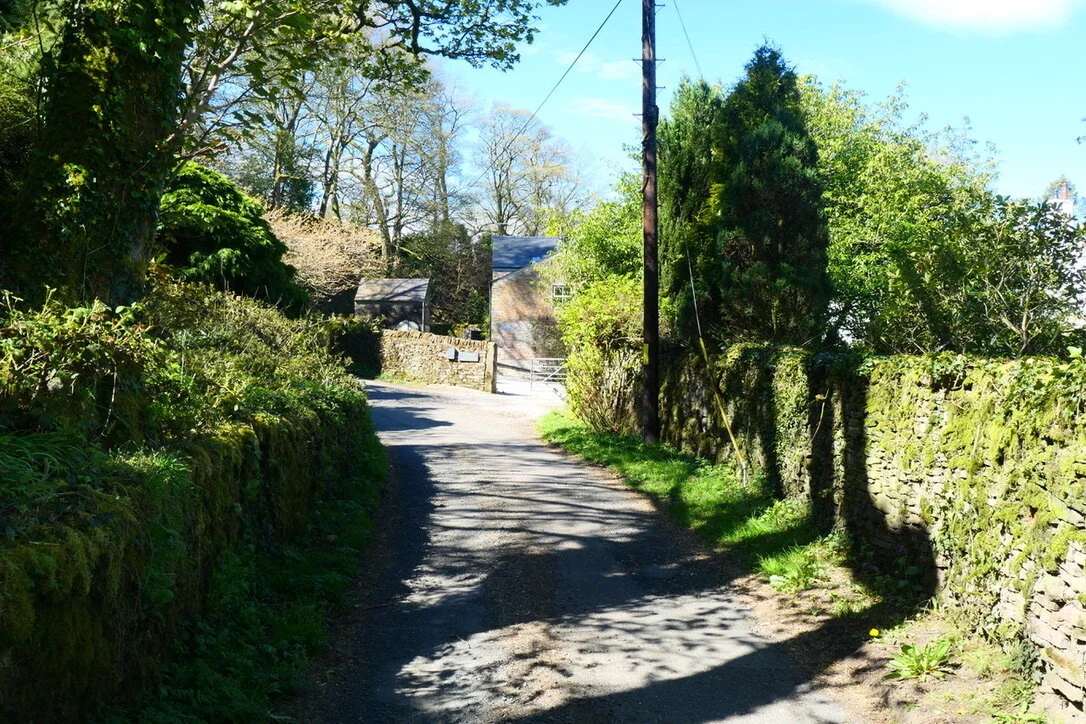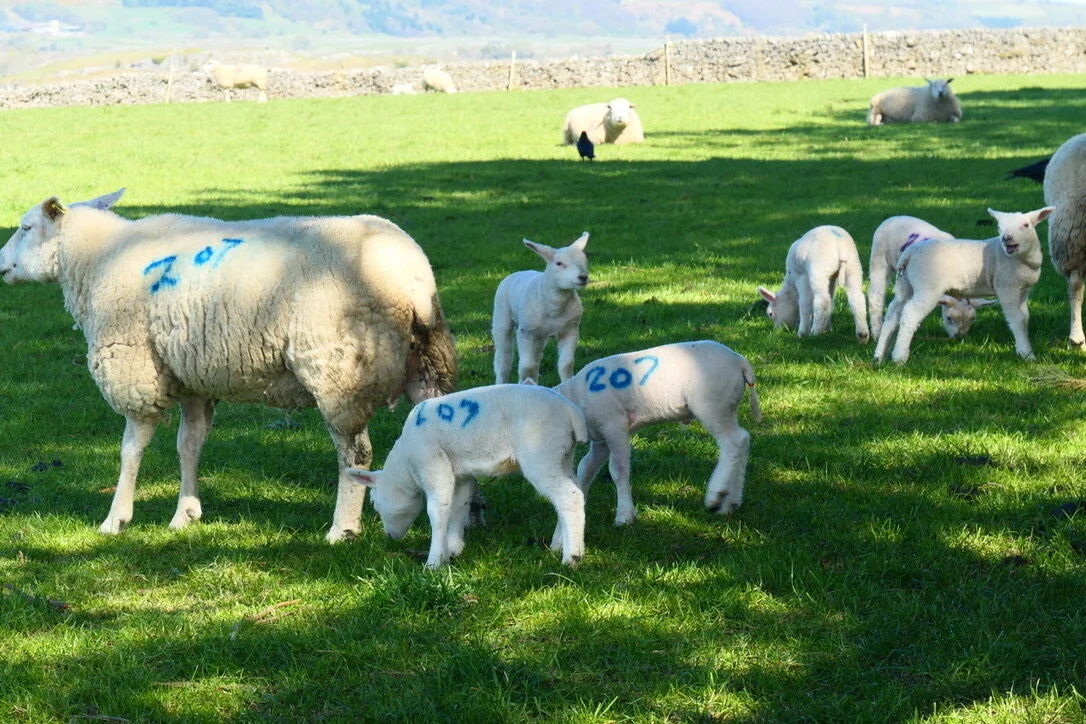Early May 2020
A typical northern England Spring day: heavy clouds, intermittent rays of brilliant sun, a few rain drops, cold wind. This weather favors flowers, blue ones, something we get little of in California as the sun washes them out. Bluebells are popping up all over, they have a lovely light fragrance. Lilacs are starting to bloom, deep purple, light mauve and white. The sheep have had their lambs. I can watch them gamboling up and down the fields, hopping, jumping, racing. Very cute.
This is a carnivore’s landscape: sheep, cows, poultry. The smells of dung waft through the open windows, and at night I can hear the sheep bleating – babies looking for their mothers, mothers calling their wayward off-spring. This part of England experienced tremendous land use change between 1500 and 1800. Agricultural productivity increased as did population. The south of England has rich arable land, up here, the climate is harsher, the soils poorer, and the terrain more mountainous. It was traditionally a region of transhumance, and increasingly became a region of meat, tallow and wool production, based on pasture. With enclosure, farms became consolidated and large farmers ran larger and larger flocks -- a thousand sheep or more. Land remains consolidated, and many of the farmers are tenant farmers. Everywhere you turn in the region, there are sheep, walls, enclosures, and some cows and dairies. But compared to the medieval period, its ‘productive,’ if not ecologically poor. Post Brexit will cause a huge shake out.
I am in lock-down, like everyone else. People are pretty good about social distancing, masks are appearing. The local greengrocers seem to be doing well, they deliver or you call in your order and pick it up; its much easier to go shopping there than the super markets where there are queues in the parking lots. The local post office carries local cheese, and there are rarely more than 1 or 2 people in the shop. But the attitude of Downing Street and Westminster has been quite lackadaisical. Despite Boris Johnson’s brush with death, the country has not developed a national plan for testing, the only plan they have is to ‘spare the NHS’, to try not to overwhelm it. Suddenly the Tories have discovered their love of the NHS, their gratitude and appreciation after nearly 40 years of savage trimming and cutting. There is no talk about providing the NHS with greater resources, testing is behind the numbers promised and anemic. But it needs to be spared from large crowds. Pretty odd. And it seems that Boris is ready to reopen quickly, just like Trump. At one point he had suggested that people over 65 should shelter in place for 6 months, and basically stay out of the way of the economy. Clearly things have gotten more complex. The approach to Brexit negotiations seems a bit crazy too – our way, or no way. We will simply revert to the rules of the WTO. On the one hand, things must open up to get people back to work, on the other lets jettison the significant economic subsidies and immigrant labor that sustains out tourist industry, in favor of British pride. Quite astonishing!
What has been striking being here and reading about British history, is an apparent, genuine lack of concern for human life, like in the U.S. the response to the coronavirus is fast and loose, an ever-rolling wave of contradictions, lies and confusions. In the UK, there is charity that counteracts the lack of empathy by the government, actually the British pretty much invented charity, an outcome of the ‘idea of poverty’ promulgated first in the UK. Today, there are dozens of competing charities, niche charities, and more general ones, dogs, cancer, children, specific diseases. What will happen to all of the charity shops when things reopen is a good question. Every town seems to have several on the high street. Of course, individual Britons are nice, charming even, caring and thoughtful. But at the level of the society, it is something different, class distinctions remain deeply entrenched, including applied to immigrants whose lives seem less worthy. This is the country of ‘Upstairs down stairs’, Charles Dickens, ruthless colonial expansion and rule. Today, rural populations too are dispensible, as has been much of the north since the closure of the coal mines and the dramatic collapse of the economies up here. In the past decade cities had started rising, including Manchester, whose pursuit of investment capital has been aggressive and indiscriminate – Chinese and Saudi investors given 500 year land leases – in exchange for a high rise building boom downtown. Manchester has also developed an extraordinary approach to greening the city and region: creating additional investment opportunities in trees planting, water management and parks, that are to yield returns on investment (I still can’t find the implementation details, nor quite figure out how that might actually work).
But the UK is a great place to look for the impacts of a pursuit of neoliberalism. The concentration of wealth in this country is extreme, the US is only catching up. Land concentration is equally high and the government has pursued a relentless campaign of land privatization. No data is collected on the privatization ROI, though the ROI is supposed to be spectacular. Very little data is collected on ownership. Its all quite closeted. And public investments have plummeted. There are high rates of poverty here, as in the U.S. The Anglo-Saxons show great solidarity in their belief in the market, their abiding faith it should reward the wealthy even more, and applying the right government nudge, tax break and rules to help the process along.


